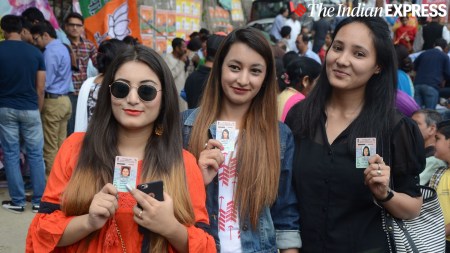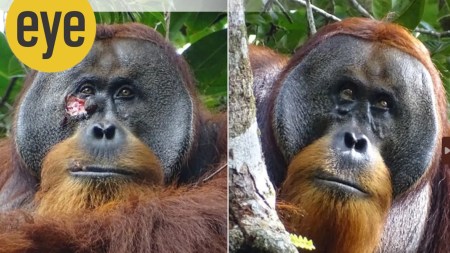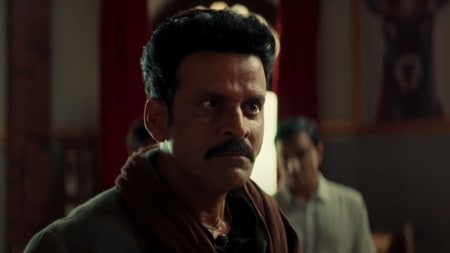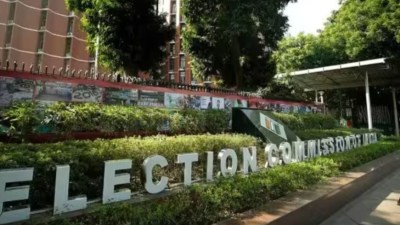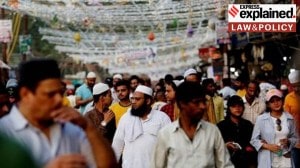- India
- International
Can eat, possess beef got from outside state: Bombay High Court
The court said the objective of the ban was to protect the cow and its progeny, not to prevent citizens from eating beef that may be brought from a state or a country where there is no prohibition on cow slaughter.
 Bombay High Court
Bombay High Court
The Bombay High Court Friday upheld the Maharashtra government’s ban on slaughter of beef in the state while allowing people to consume beef imported from other states, observing that a ban on imported beef would be “an infringement of right of privacy, which is a fundamental right”.
The court said the objective of the ban was to protect the cow and its progeny, not to prevent citizens from eating beef that may be brought from a state or a country where there is no prohibition on cow slaughter.
Under Article 21 of the Constitution, citizens are protected from unnecessary state intrusion into their home, the court held. The court also struck down a provision in the Maharashtra Animal Preservation (Amendment) Act, 1976, which put the burden on a person found to be in possession of beef to prove his innocence. The court said that, too, infringes on the fundamental rights of a person.
The state argued that striking down these provisions will make it difficult to implement the beef ban, in place since March last year. Former Advocate General Shreehari Aney had earlier argued that “other provisions cannot exist without 5D (possession of meat slaughtered from outside the state)”. The 2015 amendment to the 1976 law envisaged preventing not only slaughter but also consumption.
Upholding the ban on slaughter, a division bench of Justice A S Oka and Justice S C Gupte said, “The State Government has justified the prohibition imposed on slaughter of a cow, bull or bullock by contending that the cow progeny excreta is recognised as a source of rich organic manure which enables farmers to avoid the use of chemicals as well as inorganic manure…” The court said this has to be appreciated in light of the fact that the state economy is predominantly agricultural.
[related-post]

The court upheld the constitutional validity on ban of slaughter, transport or export of products made from bovine flesh within the state.
However, the court said preventing a citizen from possessing the flesh of a cow, bull or bullock slaughtered outside the state amounts to prohibiting a citizen from possessing and consuming food of his choice. In a 245-page judgement, the court also struck down provisions for conviction of a person for one year and a fine of Rs 2,000 for import of such meat. It also struck down the right of police or any other authority to stop or search a vehicle carrying bovine flesh slaughtered in another state.
The division bench was hearing over 20 writ petitions and PILs filed by filmmakers, students, lawyers and farmers challenging the beef ban and the constitutional validity of Section 5D of the newly amended law.
The court pointed out that in Section 5D, the focus seemed to be on consumption of beef as a food item. “Consumption of food which is not injurious to health is part of an individual’s autonomy or his right to be left alone. Hence, it is an infringement of his right of privacy. In our view, Section 5D violates the right of privacy being an integral part of the personal liberty under Article 21,” observed Justice Oka, adding that the state cannot enter people’s homes and prevent them from possession of flesh slaughtered outside the state.
“Section 5D will have to be struck down as being violative of fundamental right guaranteed by Article 21 of the Constitution of India,” said the court.
Saying that the scope of Article 21 has been expanded by the apex court, the HC said, “It includes the right to lead a meaningful life. It protects the citizen from unnecessary state intrusion into his home. For leading a meaningful life, a citizen will have to eat food and preferably food of his choice. If the state tells him not to eat a particular kind of food…it will prevent the citizen from leading a meaningful life…,” said Justice Oka.
Regarding Section 9B of the amended Act, under which the burden of proving innocence on being arrested for slaughter, transport, export, sale, purchase or possession of beef is on the accused, the court said it is easier for the prosecution to provide evidence that the slaughter was in contravention of the Act “than for the accused to bear the burden of showing otherwise”.
Justice Gupte also observed that merely because a person is found to be in possession of bovine flesh, this does not mean he probably knew that the slaughter was within the state. Such a person cannot be held guilty if he is transporting such flesh without knowledge, the court observed.
“No one has told us at the Bar…of there being any way of distinguishing the flesh of cow, bull or bullock from the flesh of other bovine species, for example buffalo. It is inconceivable that an ordinary consumer would know the difference,” Justice Gupte said.
Stating that such a burden is unreasonable and subjects the accused to a grave hardship and oppression, the court said, “The procedure prescribed by Section 9B for the trial of offences cannot be said to be fair, just and reasonable. We must, therefore, hold Section 9B as unconstitutional which infringes Article 21.”
The court also refused to grant the state government a stay on the part of the judgment which allows import of beef in the state and removes the onus on the accused to prove his or her innocence.
WATCH INDIAN EXPRESS VIDEOS HERE
May 25: Latest News
- 01
- 02
- 03
- 04
- 05



